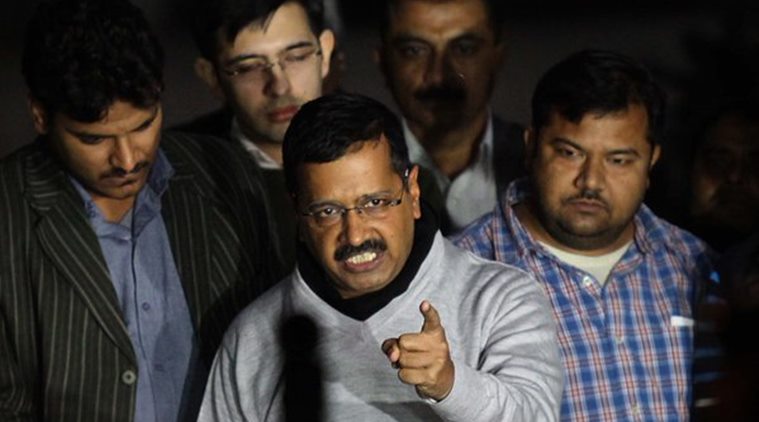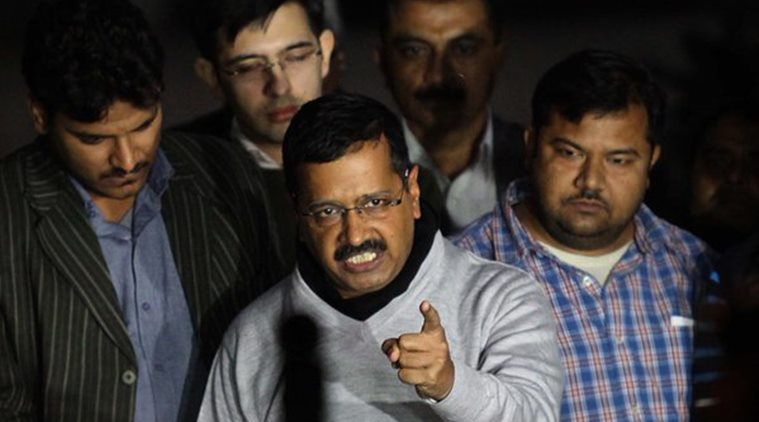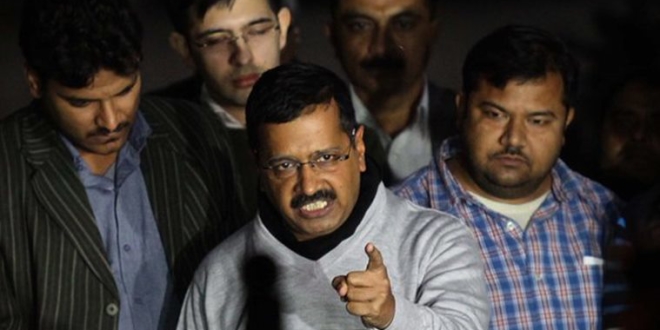
 Delhi Chief Minister Arvind Kejriwal addressing the media on Tuesday evening
Delhi Chief Minister Arvind Kejriwal addressing the media on Tuesday evening
The kind of insulting and shameful language we have heard on TV, in the public discourse, over the last one year and especially in the last three months, beginning with the beef ban and then the Dadri lynching, suggests several distasteful possibilities: That in order to grab centrestage everyone plays to the media gallery, whether or not they believe what they say (NDTV India discussed whether Delhi Chief Minister Arvind Kejriwal knew the meaning of “psychopath”); that TV news does everything to goad them into being even more offensive; that everyone believes they can say what they like and get away with it; that the more we all say what we like with impunity, the more it loosens ours and others’ tongues to say even more (outrageous, obnoxious) things; that the “decorum” (as journalist Arati Jerath called it, NDTV 24×7) and fear of being shamed, which prevented us from saying whatever we liked previously, have disappeared, allowing a free-falling barrage of wild statements and insults; and that all of the above are hurtling us towards a kind of anarchy of language.
Remember Kejriwal had called himself an anarchist and Prime Minister Narendra Modi had promptly recommended that he join the Naxals?
Interestingly, there have been many references to the 1975-77 Emergency recently. Finance Minister Arun Jaitley recalled it during the Ambedkar debate in Parliament last month, and just yesterday, AAP member Raghav Chadha said that after the Emergency, December 15, 2015, would be a red letter day.
Is that a warning or a threat?
Listening to the politicians inside and outside Parliament, you begin to wonder. There is such bad blood between opponents that the Yamuna could flow red. The din in Parliament is magnified on TV evening shows. On both, you hear anger. Increasingly, politicians yell into TV microphones on the ground, too — Rahul Gandhi last week outside Parliament and, of course, Kejriwal on Tuesday, to name the most recent offenders.
Increasingly, Kejriwal is hectoring the public rather in the manner of Modi. Both leaders are given to personalised hyperbole, and this is perhaps raising the pitch of the discourse to higher levels of unparliamentary language. When Kejriwal ended his press conference on Tuesday with the dramatic “[I will work for the country] marte dum tak”, he sounded so much like Modi — and Indira Gandhi.
And we have all noticed how aggressive the silent spectator of Parliament, Rahul Gandhi, has now become. What’s going on?
Guests on TV debates routinely insult each other, yell at each other and, on at least one recent memorable occasion, a woman slapped a panelist and they came to blows (IBN7). Yesterday, the BJP’s Nalin Kohli said he would leave the NDTV 24×7 discussion if the AAP’s Chadha continued his “rubbish”. And the JD(U)’s Pavan Verma said it was “rich” that Meghnad Desai, “not even a citizen of the country”, criticised the Indian polity — Desai had suggested that because Modi is an OBC, “people can’t stand him”.
This is what passes for the polite. Vendetta politics, fascism, psychopath, caste, cry-baby, your “rubbish”, my “rubbish”, your “lies”, my “lies”… TV news sounds and looks more and more like a soap opera, with its dramatics, verbal duels and the habit of other speakers acting as mute witnesses to the violent exchanges.
Maybe everyone should watch Mind Your Language instead?
Even when there is nothing remarkable, trust TV news or social media to find something to say. So, on Monday, Sudarshan News ran a promo by Shah Rukh Khan for Dilwale, in which the channel said he invited Pakistanis to watch his latest film. “Won’t this be bad for the atmosphere in the country?”, asked the Sudarshan anchor. Excuse me?
shailaja.bajpai@expressindia.com
![]()
Source: New feed






